Do You Have These Seven Habits of Highly Effective Investors?
March 14, 2023
Over thirty years ago, the book “The 7 Habits of Highly Effective People” quickly became a bestseller by offering a common-sense approach to improving life outcomes through personal change.
Investing may be seen in a similar light — establishing certain habits can help to make better investors.
Here are seven practices that can serve investors well:
1. Recognize that time is one of your greatest assets. The odds of investing success fall in your favour when you combine a long time horizon with the power of compounding investments. Even average returns, compounded over a long time period, can lead to superior overall results. Consider that a one-time, lump-sum investment of $55,000 will yield around $209,000 in 25 years at a compounded annual rate of return of 5.5 percent. However, in 55 years, it will yield over $1 million. 1
2. Accept that markets are inherently volatile. Volatility is what allows equities to be one of the greatest generators of returns of any asset class over the longer term. In periods of volatility, remember that it is a permanent fixture in equity markets. Over time, equity markets will have incredible up periods, such as the one we experienced in 2021, but also many difficult down times.
3. Maintain patience, through good times and bad. Participation, by having the patience to see through the inevitable ups and downs, can make a significant difference in investing. Successful investing often involves the patience to overcome many short-term setbacks in order to enjoy longer-term compounding and progress.
4. Don’t abandon risk controls. When equity markets are rising, it can be easy to get caught up in the excitement. When markets are falling, it may be difficult to believe that the down times will eventually end. Of course, emotions are not usually an investor’s best ally. Some of the most successful investors are able to put emotions aside when they make portfolio decisions, and this often involves following various guidelines that have been established to control risk — for example, strategic diversification, rebalancing to a certain asset mix, limiting the size of any holding and maintaining quality criteria for holdings. These can help to guard against being caught in the prevailing momentum by identifying potential risks that may not always be overly apparent.
5. Stop listening to the noise. Everyone has an opinion on investing and the markets. In good times, everyone can sound like an expert and we may fear missing out. In difficult times, the media headlines can magnify economic misery and instill fear. At the end of the day, thoughtful analysis should drive decision-making — not any peripheral noise.
6. Save more. Saving is one of the cornerstones of building wealth. You can build wealth without a high income, but you have no chance without a high savings rate. Saving is one aspect that an investor can control — unlike the many others which we cannot, such as stock market performance, interest rates or the timing of recessions.
7. Continue to have confidence in the value of support. We are here to provide support at every stage of the investment journey to help you achieve your goals, and this can extend beyond investment advice. This may include helping to instill discipline, through saving or investing, or to enhance total wealth management, through retirement-planning, tax-planning or estate-planning support. Studies continue to show that advised clients have greater assets — more than 3.9 times the assets than non-advised investors after 15 years — and greater discipline through volatile times. 2
1. Assuming no taxes or fees; 2. IFIC, https://www.ific.ca/en/articles/canadian-investors-value-advice/; https://www.cirano.qc.ca/files/publications/2016s-35.pdf
Here are seven practices that can serve investors well:
1. Recognize that time is one of your greatest assets. The odds of investing success fall in your favour when you combine a long time horizon with the power of compounding investments. Even average returns, compounded over a long time period, can lead to superior overall results. Consider that a one-time, lump-sum investment of $55,000 will yield around $209,000 in 25 years at a compounded annual rate of return of 5.5 percent. However, in 55 years, it will yield over $1 million. 1
2. Accept that markets are inherently volatile. Volatility is what allows equities to be one of the greatest generators of returns of any asset class over the longer term. In periods of volatility, remember that it is a permanent fixture in equity markets. Over time, equity markets will have incredible up periods, such as the one we experienced in 2021, but also many difficult down times.
3. Maintain patience, through good times and bad. Participation, by having the patience to see through the inevitable ups and downs, can make a significant difference in investing. Successful investing often involves the patience to overcome many short-term setbacks in order to enjoy longer-term compounding and progress.
4. Don’t abandon risk controls. When equity markets are rising, it can be easy to get caught up in the excitement. When markets are falling, it may be difficult to believe that the down times will eventually end. Of course, emotions are not usually an investor’s best ally. Some of the most successful investors are able to put emotions aside when they make portfolio decisions, and this often involves following various guidelines that have been established to control risk — for example, strategic diversification, rebalancing to a certain asset mix, limiting the size of any holding and maintaining quality criteria for holdings. These can help to guard against being caught in the prevailing momentum by identifying potential risks that may not always be overly apparent.
5. Stop listening to the noise. Everyone has an opinion on investing and the markets. In good times, everyone can sound like an expert and we may fear missing out. In difficult times, the media headlines can magnify economic misery and instill fear. At the end of the day, thoughtful analysis should drive decision-making — not any peripheral noise.
6. Save more. Saving is one of the cornerstones of building wealth. You can build wealth without a high income, but you have no chance without a high savings rate. Saving is one aspect that an investor can control — unlike the many others which we cannot, such as stock market performance, interest rates or the timing of recessions.
7. Continue to have confidence in the value of support. We are here to provide support at every stage of the investment journey to help you achieve your goals, and this can extend beyond investment advice. This may include helping to instill discipline, through saving or investing, or to enhance total wealth management, through retirement-planning, tax-planning or estate-planning support. Studies continue to show that advised clients have greater assets — more than 3.9 times the assets than non-advised investors after 15 years — and greater discipline through volatile times. 2
1. Assuming no taxes or fees; 2. IFIC, https://www.ific.ca/en/articles/canadian-investors-value-advice/; https://www.cirano.qc.ca/files/publications/2016s-35.pdf
Disclaimers
Forward-looking statements are based on current expectations, estimates, forecasts and projections based on beliefs and assumptions made by author. These statements involve risks and uncertainties and are not guarantees of future performance or results and no assurance can be given that these estimates and expectations will prove to have been correct, and actual outcomes and results may differ materially from what is expressed, implied or projected in such forward-looking statements.
The opinions expressed in this report are the opinions of the author and readers should not assume they reflect the opinions or recommendations of Echelon Wealth Partners Inc. or its affiliates. Assumptions, opinions and estimates constitute the author’s judgment as of the date of this material and are subject to change without notice. We do not warrant the completeness or accuracy of this material, and it should not be relied upon as such. Before acting on any recommendation, you should consider whether it is suitable for your particular circumstances and, if necessary, seek professional advice. Past performance is not indicative of future results. These estimates and expectations involve risks and uncertainties and are not guarantees of future performance or results and no assurance can be given that these estimates and expectations will prove to have been correct, and actual outcomes and results may differ materially from what is expressed, implied or projected in such forward-looking statements. Echelon Wealth Partners Inc. is a member of the Investment Industry Regulatory Organization of Canada and the Canadian Investor Protection Fund.




